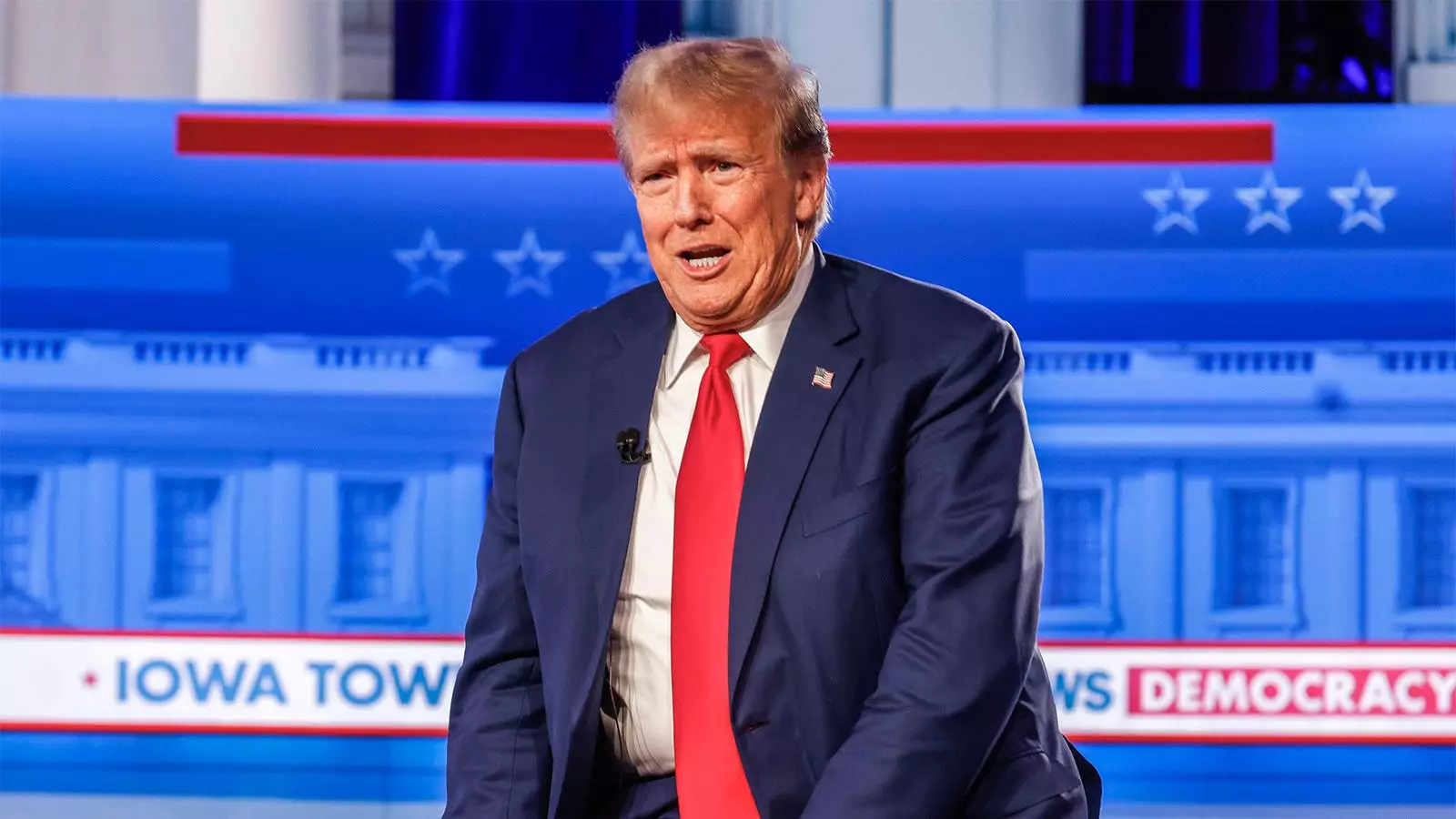Former President Donald Trump recently shared his perspective on the history of the COVID-19 pandemic during a town hall event in Iowa. While discussing the origins of the virus, Trump stated that he believes it originated from a lab in Wuhan, China, but not intentionally. He speculated that the virus emerged due to incompetence and suggested it may have been a result of transmission between two individuals in a lab. However, it is important to note that these claims lack substantial evidence, and the scientific community holds differing opinions on the “lab leak” hypothesis.
Regarding lockdown measures, Trump asserted that he did not enforce a nationwide shutdown, despite some individuals advocating for it. He emphasized that he allowed state governors to make their own decisions. While it is true that some states, such as Tennessee, North Dakota, and South Carolina, did not implement strict lockdown measures, it is crucial to recognize that different states faced unique circumstances and challenges during the pandemic. The effectiveness of various approaches to mitigating the spread of the virus remains a topic of ongoing debate and analysis.
Trump also touched upon his relationship with Dr. Anthony Fauci, the former Director of the National Institute of Allergy and Infectious Diseases. Responding to concerns about Fauci’s influence on his administration’s actions, Trump mentioned Florida Governor Ron DeSantis, stating that DeSantis had initially followed Fauci’s guidance. However, it is essential to acknowledge that political leaders often relied on experts’ advice, including Fauci, to navigate the complexities of the pandemic. Furthermore, it is worth noting that public health measures evolved as more information became available, so positions regarding certain strategies might have changed over time.
While discussing his own administration’s handling of the pandemic, Trump downplayed Fauci’s role, stating that he was not a significant factor during his presidency but became more influential in President Biden’s administration. However, it is important to recognize that Fauci has been a prominent figure in the field of infectious diseases for decades, providing guidance and expertise to multiple administrations, including Trump’s.
Trump also delved into healthcare topics beyond the pandemic, focusing on Medicare and abortion. He claimed that Governor Nikki Haley of South Carolina and Governor DeSantis wanted to cut Medicare, suggesting they aimed to raise the eligibility age from 65 to 74 or 75. It is crucial to critically evaluate such claims, as they can have significant implications on healthcare policy. While politicians may propose changes to Medicare or other healthcare programs, it is essential to scrutinize the details of their proposals and evaluate the potential impact on various demographics.
On the topic of abortion, Trump attempted to strike a delicate balance in response to a question from an audience member. He mentioned his role in shaping the Supreme Court by appointing Justices Gorsuch, Kavanaugh, and Barrett, who have voted to overturn the Roe v. Wade decision. However, he clarified that he supports exceptions for the life of the mother, rape, and incest. It is important to recognize that the issue of abortion is highly complex and deeply rooted in personal beliefs and values. Balancing the rights of the mother and the potential life of the fetus remains a contentious topic that elicits strong opinions from various perspectives.
Former President Donald Trump’s statements during the town hall event in Iowa covered a range of topics related to COVID-19, Medicare, and abortion. However, it is crucial to approach these statements with a critical lens, evaluating the available evidence and considering different viewpoints. Analyzing political claims and perspectives is an essential part of engaging in informed discussions and making well-rounded decisions as citizens.

Leave a Reply